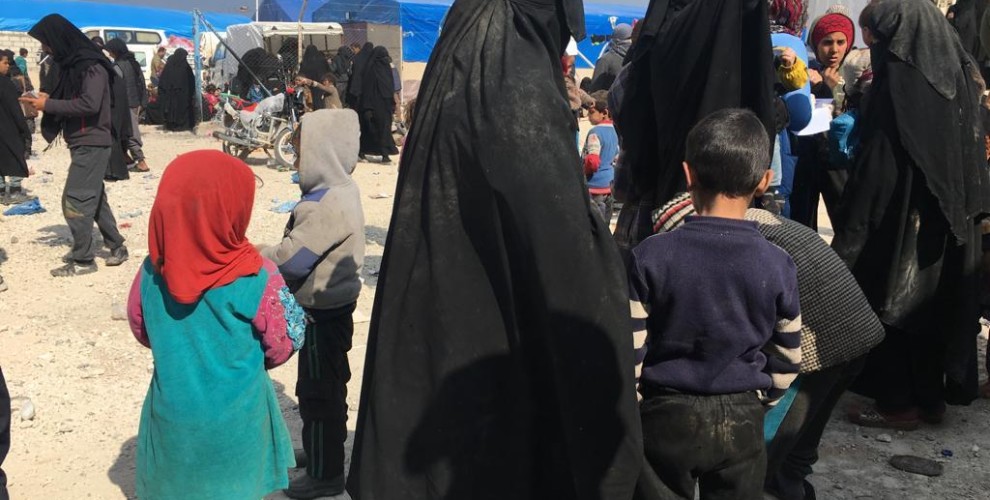UN call for the Hol Camp in Heseke
Since December 2018, approximately 45,000 people have fled the Hajin and Al-Baghouz areas of Deir-ez-Zor and arrived at Al-Hol camp.
Since December 2018, approximately 45,000 people have fled the Hajin and Al-Baghouz areas of Deir-ez-Zor and arrived at Al-Hol camp.

The United Nations (UN) in the Syrian Arab Republic expressed grave concern about the plight of thousands of civilians fleeing the last ISIL-held areas of Al-Baghouz in south-eastern rural Deir-Ez-Zor Governorate following sustained and intense hostilities in the area.
The related statement by the UN in Syria recalled that in the last week alone, approximately 13,000 people, 90 per cent of them women and children, have arrived at Al-Hol camp in Al-Hassakeh Governorate. Many of them arrive exhausted, hungry and sick. Large numbers of people continue to arrive at the site on a daily basis, which is now operating over-capacity.
“Since December 2018, approximately 45,000 people have fled the Hajin and Al-Baghouz areas of Deir-ez-Zor and arrived at Al-Hol camp. Those fleeing have told of a desperate situation for civilians in the areas affected by hostilities, with widespread reports of civilians killed and injured, large-scale destruction of civilian infrastructure, extensive contamination, and shortages of food, medicines and other basic necessities.
The UN is deeply concerned that those arriving at Al-Hol, in particular young children and pregnant women, are in dire condition, having had limited access to health and other essential services in the Hajin area and on their long and tiring journey to the camp So far, there are reports of more than 84 deaths; two-thirds of them are children under five years of age that lost their lives either en route or shortly after arriving at the camp. 175 children have been hospitalised due to medical complications from severe acute malnutrition, with 12 new cases reported in one day. More than 150 children are presently being treated for diarrhoea.
In response, the UN, NGO partners and relevant authorities have mounted a significant relief effort at Al-Hol camp and surrounding areas to meet the growing needs and provide life-saving assistance and services to all new arrivals. This includes around the clock emergency health and protection assistance, with all new arrivals receiving food, water, shelter, core non-food items, including warm clothes and blankets, as well as other critical support. In the past few days, a transit center has been established to provide basic assistance at a mid-way point between Baghouz and Al-Hol camp. Trauma capacity has also been established along the route to assist critical medical cases, while accelerated screening procedures have also been introduced at Al-Hol to alleviate overcrowding and expedite the provision of assistance. Efforts to expand the camp are also underway.
Despite these efforts, the rate and scale of the most recent influx of people, presents additional challenges to the response, with the camp population increasing more than five-fold in a very short period of time. People who are especially at risk in the camp include pregnant women, new-borns, people with war injuries, unaccompanied elderly people, and people with disabilities. While the UN continues to step up assistance; more tents, food, non-food items, water and sanitation, health and protection services, as well as other emergency supplies are urgently needed.”
The United Nations continued to call on all parties to ensure that all efforts are made to protect civilians, facilitate and expedite access for humanitarian actors and needed supplies to the area, and to ensure the displaced have access to assistance and protection services.
The UN further called for additional financial resources to meet the upsurge and scale of humanitarian needs of tens of thousands of newly displaced people at Al-Hol camp and for this support to be provided according to needs and without adverse distinction.